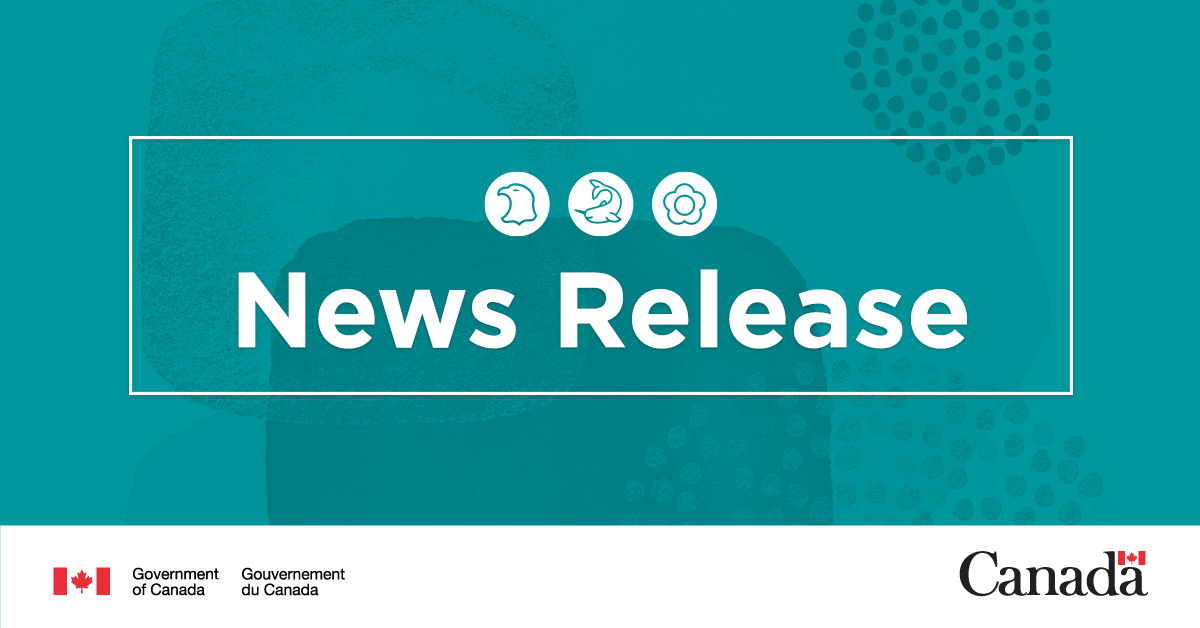Government of Canada makes progress in addressing the Calls for Justice to end national crisis of missing and murdered Indigenous women, girls, Two-Spirit, and gender-diverse people

June 3, 2024 — Ottawa, ON, Unceded Algonquin Traditional Territory — Crown-Indigenous Relations and Northern Affairs Canada
Indigenous women, girls, Two-Spirit and gender-diverse people are 12 times more likely to go missing or be murdered in comparison to non-Indigenous women in Canada. We must work together urgently to make communities safer, to bring justice to survivors and families, and to dismantle the long-standing, systemic racism, misogyny, and discrimination created by over a century of colonization that has led to this tragic crisis in Canada.
Since the launch of the National Inquiry into Missing and Murdered Indigenous Women and Girls, the Government of Canada has made efforts to advance around three quarters of the federal work outlined in the Calls for Justice.
Today, the Honourable Gary Anandasangaree, Minister of Crown-Indigenous Relations, released the 2023–24 Federal Pathway Annual Progress Report. The report highlights the progress the federal government has made over the last year in responding to the National Inquiry’s Calls for Justice, including:
- To prevent violence and respond to immediate needs, federal funding is supporting 47 emergency shelters and transitional housing projects creating 380 units within First Nations, Inuit, Métis, and Indigenous urban communities across Canada. We have also helped Indigenous communities complete 52 projects that improve community safety and well-being, such as the Red Eagle Lodge in Saskatoon which is providing cultural programming and services for Indigenous women, girls, Two-Spirit, and gender-diverse people to help with healing from trauma, including intergenerational trauma and addiction, and to support a reintroduction of traditional parenting and family reunification.
- To address Call for Justice 5.5 to ensure access to reliable Internet in communities, over 3,000 Indigenous households received high-speed Internet access through federally-funded projects. Better connectivity means more tools for Indigenous women, girls, Two-Spirit, and gender-diverse people in moments of danger, helping victims of violence access online resources.
- To address Call for Justice 3.2 around the critical lack of access to health services in communities – which forces Indigenous women, girls, Two-Spirit, and gender-diverse people to relocate to urban areas to access health care, without guaranteed safety or security – we have funded close to 100 Indigenous communities and organizations to date to improve midwifery services and infrastructure. For example, the mobile birth centre program in Six Nations of the Grand River provides a safe place to give birth when an individual’s home is not suitable.
- To address systemic issues and root causes of violence, over the past year, the Ministerial Special Representative met with 600 people – representing more than 125 First Nations, Inuit, and Métis governments and organizations – about the need for a simple, barrier-free, trauma-informed way for Indigenous Peoples to address inequities in government programs and services that result in human rights violations. The resulting report provides advice on the creation of Indigenous and Human Rights Ombudspersons—a critical step towards ensuring accountability and justice, while helping us implement the Call for Justice 1.7.
Looking ahead to 2024-25, as more work remains to be done, the Government of Canada will continue, in partnership with the provinces and territories, to address long-standing and emerging issues and to make progress on the Calls for Justice to end the national crisis of missing and murdered Indigenous women, girls, Two-Spirit, and gender-diverse people.
We are committed to learning from Indigenous partners, such as the National Families and Survivors Circle Inc., in a way that respects our shared priorities and puts Indigenous survivors and families at the centre of our work. We all have a role to play and, we must all recognize that this crisis will only be over when every Indigenous woman, girl, Two-Spirit, and gender-diverse person in Canada is safe from all violence.





